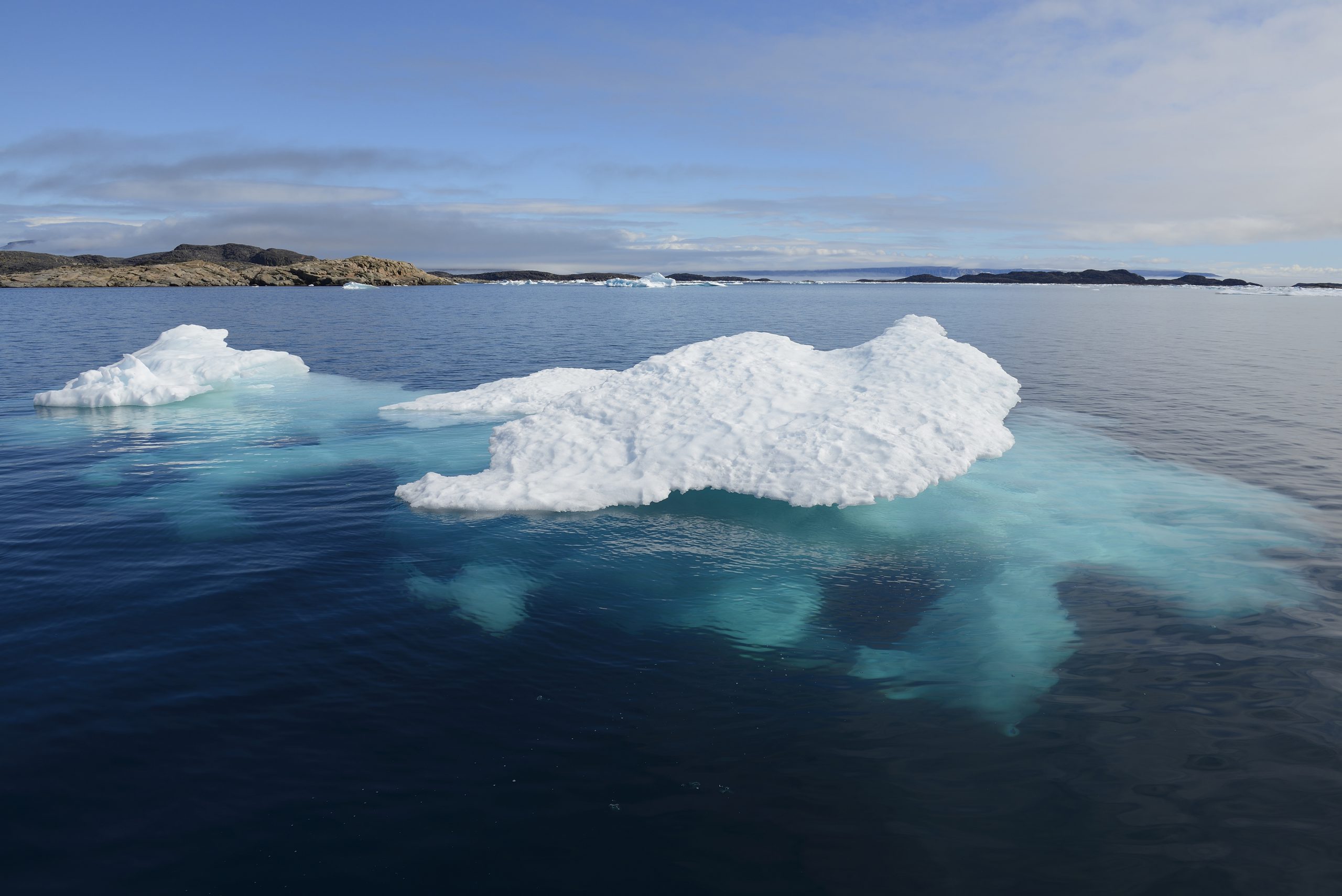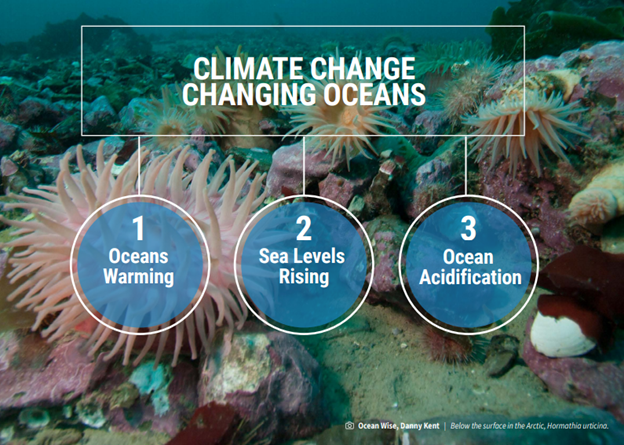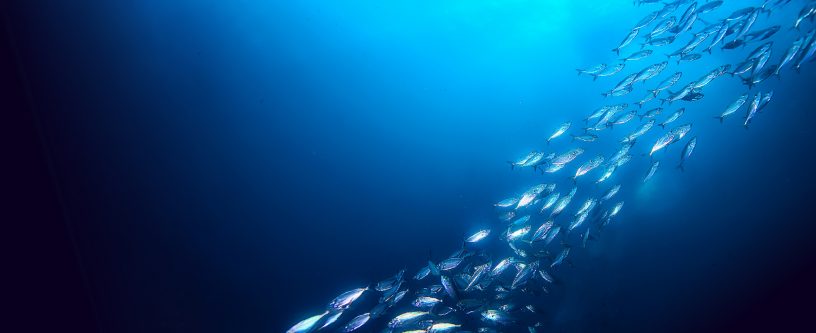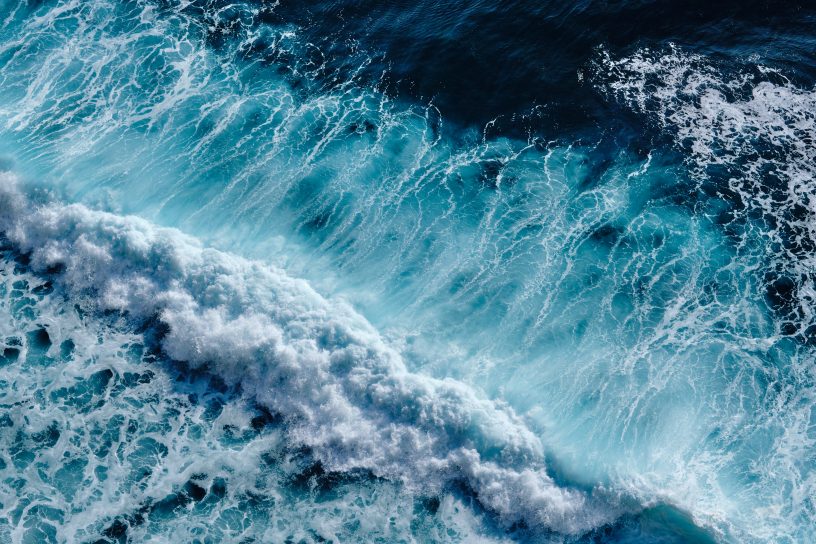
Climate Change and Canada’s Oceans
The latest report in Ocean Wise’s Ocean Watch Spotlight series focuses on climate change impacts in Canada’s oceans. Climate change is a globally pervasive issue, and the ocean and its inhabitants are suffering from the effects.
In the report released this week, Ocean Wise looks at three key impacts of climate change on the ocean: ocean warming, sea level rise, and ocean acidification.
We use Canadian examples to examine how our oceans are affected. Canada – which is bordered by three oceans and has the longest coastline of any country in the world – is currently warming at more than twice the global rate.

Ocean warming
It is now well understood that increased greenhouse gases produced by human activities has resulted in more heat being trapped in our atmosphere. What is less well known is that the ocean has absorbed most of this excess heat. Warming waters result in thermal expansion, lower oxygen content, increased instances of infectious marine diseases, and melting sea ice and glaciers. The results are more pronounced in the Canadian Arctic which is warming at almost three times the global average. Decreases in the thickness and extent of sea ice are having devastating consequences for many species including walrus. A recent study by Rosen (2020) shows that receding sea ice means that walruses must expend more energy finding food, leaving them with less energy for growth and reproduction and more vulnerable to predators.
Sea Level Rise
Ocean warming and thermal expansion are direct consequences of climate change and are causing rising sea levels which threaten both coastal habitats and infrastructure. Options for mitigating the impacts of encroaching waters include soft shore armoring using natural solutions. One such solution is restoring wetlands such as salt marshes, as is being done in Nova Scotia. As waters continue to rise and old dikes fail, multiple organizations are undertaking restoration work in the region to reduce coastal erosion. Hybrid solutions combining salt marsh restoration and the construction of new dikes are also common.
Ocean acidification
The ocean’s uptake of excess carbon dioxide in our atmosphere causes a chemical reaction which decreases the pH of the ocean. These increasingly acidic conditions are problematic for habitats and biodiversity. There are many marine creatures that build their shells or skeletons from carbonate, which is less available in acidic waters. This makes them vulnerable to corrosion and dissolution. As these creatures are often near the bottom of the food web, the impacts filter up to larger predators. One of these smaller creatures is called the sea butterfly (Limacina helicina), a small marine snail. A recent study showed that this species is undergoing dissolution in the majority of the Canadian Arctic, causing cascade effects in the food chain in that region.
For more in-depth coverage of these topics, along with illustrations, read the full Canada’s Changing Oceans: Impacts of Climate Change Spotlight report here.
Ocean Wise is working in the field to mitigate climate change impacts. Our Seaforestation initiative seeks to both restore kelp and help seaweed farmers scale-up their production to increase biodiversity, protect shorelines from erosion, and sequester carbon as a climate change solution.
Ocean Wise’s Changing Arctic initiative sees researchers continue their work alongside Northern Indigenous communities to monitor and track changes in sea ice, and the implications of reduced sea ice on underwater noise, species, and habitats in the Arctic.
Your actions matter!
Your daily actions can have an important impact in reducing greenhouse gas emissions, too! The following is a list of things you can do to aid in the fight against climate change:
- Switch to an electric car for your next purchase.
- Carpool whenever possible.
- Use public transit, walk or ride your bike when possible.
- Reduce air travel.
- Upgrade household appliances to eliminate natural gas ranges, furnaces and heating.
- Correctly recycle appliances at the end of their life.
- Eat less meat. Start with just one meat-free meal each week.
- Eat local and support local food producers.
- Reduce your food waste.
Posted April 20, 2021 by Ocean Wise





